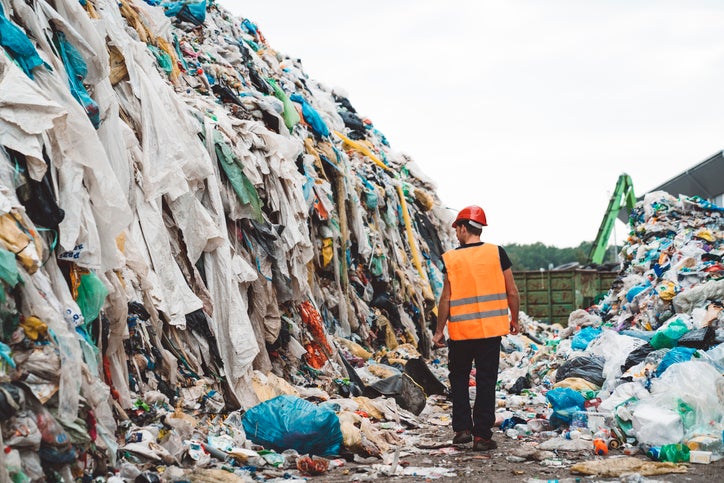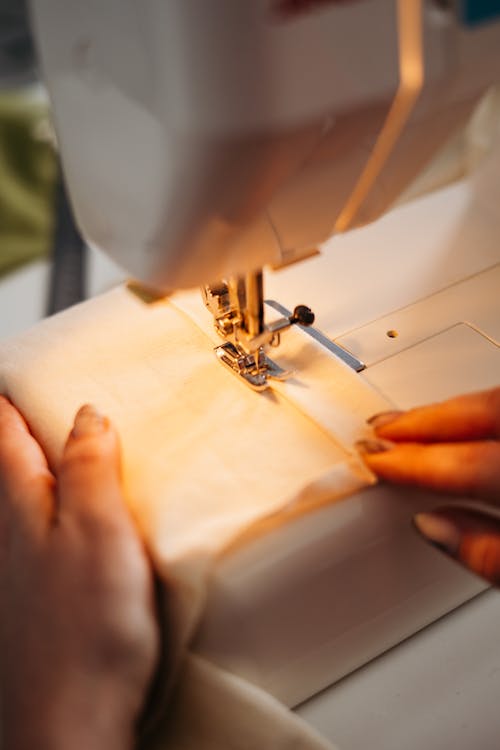
In an ambitious move to combat waste and bolster recycling efforts, Environment Minister Rebecca Pow has unveiled the 'Maximizing Resources, Minimising Waste' programme. This groundbreaking initiative, spanning seven key sectors of the economy, is set to transform the way England handles its waste, with a particular focus on the textile industry. Backed by government funding, this program aims to promote sustainability and keep products and materials circulating in the economy for as long as possible.
At the heart of this new program lies a concerted effort to revolutionize textile recycling. Recognizing the vast environmental impact of textile waste, the program introduces a host of innovative measures to ensure a more sustainable future for the fashion and textile industries.
Extended Producer Responsibility (EPR) Scheme: Spearheading Change
One of the cornerstone proposals is the development of an extended producer responsibility (EPR) scheme specific to textiles. By shifting the responsibility for the end-of-life management of textiles onto producers, this scheme will encourage manufacturers to design products with recycling in mind. By fostering eco-friendly and recyclable materials, the EPR scheme will drive a fundamental shift towards sustainable textile production.
In addition, the EPR scheme introduces measures aimed at extending the lifespan of textile products. By promoting durability, repairability, and modularity, consumers will be encouraged to use their textiles for longer, reducing the need for frequent replacements and consequently lessening the overall textile waste generated.

Diverting Materials from Waste: A Circular Economy Approach
Embracing the principles of a circular economy, the program emphasizes the diversion of textile materials from waste streams. This will involve collaborations with businesses, consumers, and local authorities to set up efficient collection and recycling systems. By capturing textiles that would otherwise be discarded, the program will channel valuable resources back into the economy, reducing the demand for virgin materials and minimizing environmental degradation.
Recognizing the potential for economic growth in the recycling sector, the program seeks to stimulate the development of a robust textile recycling industry. Government funding will support research and innovation in textile recycling technologies, as well as facilitate partnerships between recycling startups and established manufacturers. By creating green jobs and fostering a sustainable industry, the program aims to align economic growth with environmental responsibility. Engaging with industry stakeholders, NGOs, and local communities, the program aims to develop comprehensive solutions that address the unique challenges of the textile sector. By pooling resources and expertise, this approach will maximize the impact of the program and drive lasting change.
In conclusion, the 'Maximizing Resources, Minimising Waste' programme represents a significant step forward in England's commitment to reducing waste and promoting recycling across the economy, particularly within the textiles sector. By implementing measures such as the EPR scheme, prolonging product life, diverting materials from waste, and fostering a textile recycling industry, the government is taking bold strides towards a more sustainable and circular future. With a focus on collaboration and innovation, this comprehensive program is poised to revolutionize the way England approaches waste management and sets a shining example for the world in the fight against environmental degradation.
Notable Companies that Are Working Towards Circular Textiles:
Patagonia: Known for its commitment to environmental and social responsibility, Patagonia has been a leader in sustainable fashion and has implemented various initiatives to promote circular textiles, such as their Worn Wear program.
Eileen Fisher: Eileen Fisher is a fashion brand that focuses on ethical and sustainable practices. They have a "Renew" program that takes back used Eileen Fisher garments and repurposes them into new designs.
Reformation: Reformation is a brand that emphasizes sustainable and circular fashion practices, using eco-friendly materials and promoting recycling and upcycling of clothing items.
The Renewal Workshop: The Renewal Workshop partners with brands to take back used garments, repair, and refurbish them, creating a circular system for fashion brands.
Looop: Looop is a Swedish brand that has developed a groundbreaking technology to recycle textiles in a closed-loop system, creating new clothing from old garments.
Worn Again Technologies: Worn Again Technologies is a UK-based company that uses innovative chemical recycling technology to transform end-of-life textiles into new, high-quality raw materials.